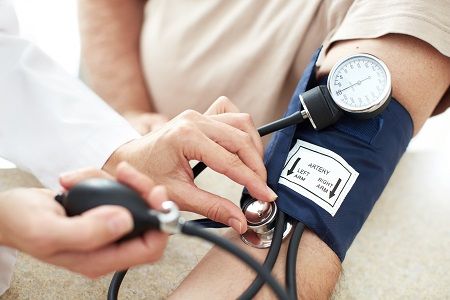Researchers Beginning to Understand How Acupuncture Reduces Hypertension
Acupuncture has been used and studied as an alternative pain management method, and although it appears to offer some benefit as a treatment for some forms of chronic pain, the evidence supporting its positive effect on other health conditions is uneven at best.

As the prescription drug addiction epidemic expands, finding alternative routes for pain relief remains a top priority among researchers. Acupuncture has been used and studied as an alternative pain management method, and although it appears to offer some benefit as a treatment for some forms of chronic pain, the evidence supporting its positive effect on other health conditions is uneven at best. Recently, researchers have been looking at potential cardiovascular benefits stemming from acupuncture.
A study out of the University of California, Irvine Susan Samueli Center for Integrative Medicine revealed that regular electroacupuncture treatment can reduce hypertension. Previous research has indicated that acupuncture can lower blood pressure in hypertension, but little other supporting information beyond that was available.
Electroacupuncture is similar in application to traditional acupuncture, but in this case, the needles also carry a mild electric current. It is believed that the treatment increases the release of an opioid in the brainstem region that controls blood pressure.
“To stimulate clinical studies, we performed electroacupuncture in unanesthetized rats with cold-induced hypertension (CIH) induced by six weeks of cold pressure (6°C) [almost 43°F],” the authors described in Nature’s Scientific Reports. “Electroacupuncture was applied at ST36-37 acupoints overlying the deep peroneal nerve for 30 minutes twice weekly for five weeks while sham-electroacupuncture was conducted with the same procedures as electroacupuncture except for no electrical stimulation.”
After six electroacupuncture sessions, the 18 CIH rats with elevated blood pressure experienced reduced levels — and they remained that way for three days afterwards. However, the 12 rats that received the sham treatment didn’t experience this benefit – and neither did the six rats that had cold-induced hypertension but weren’t treated.
Furthermore, more of the treated CIH animals had increased mRNA levels of preproenkephalin — peptides related to endorphins – in the rostral ventrolateral medulla (rVLM) three days afterwards than animals in the sham or untreated CIH groups.
The team concluded that these findings indicate that repetitive electroacupuncture increased enkephalin in the rVLM — the brain region responsible for the sympathetic nervous system – which contributed to lowering blood pressure.
Related Coverage:
Acupuncture for Kids? Study Says Yes
Acupuncture Can Help TBI Headaches
Acupuncture Can Relieve Fibromyalgia Pain, If It’s Tailored Per Patient